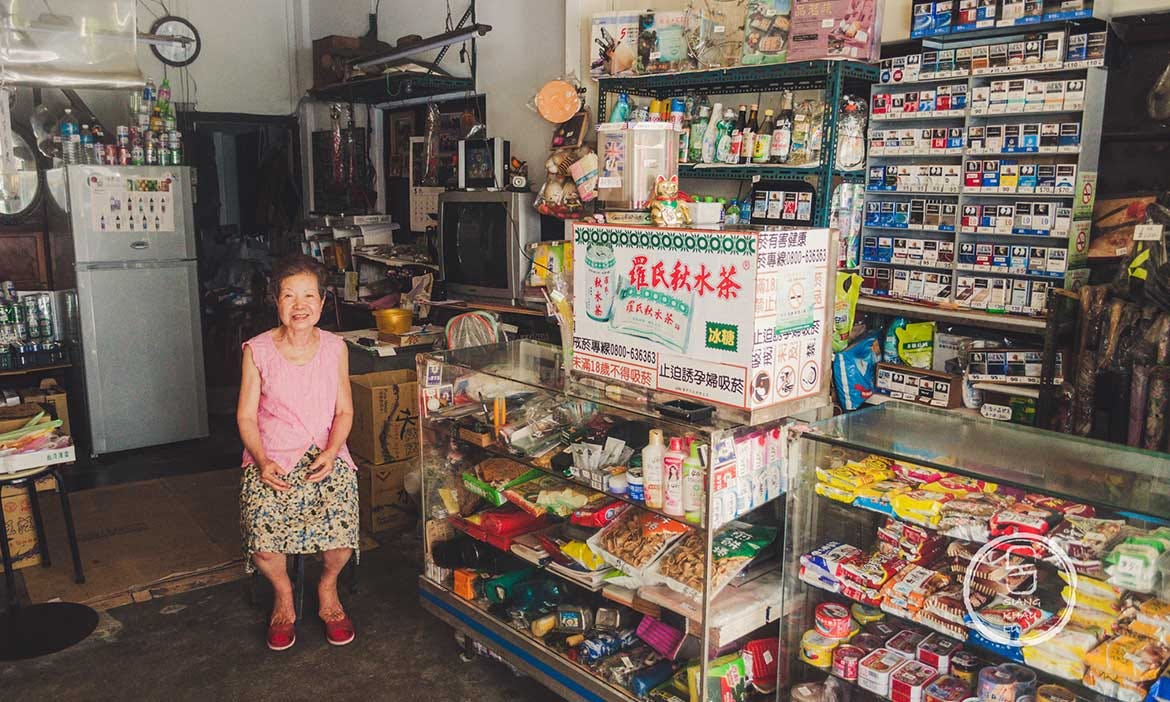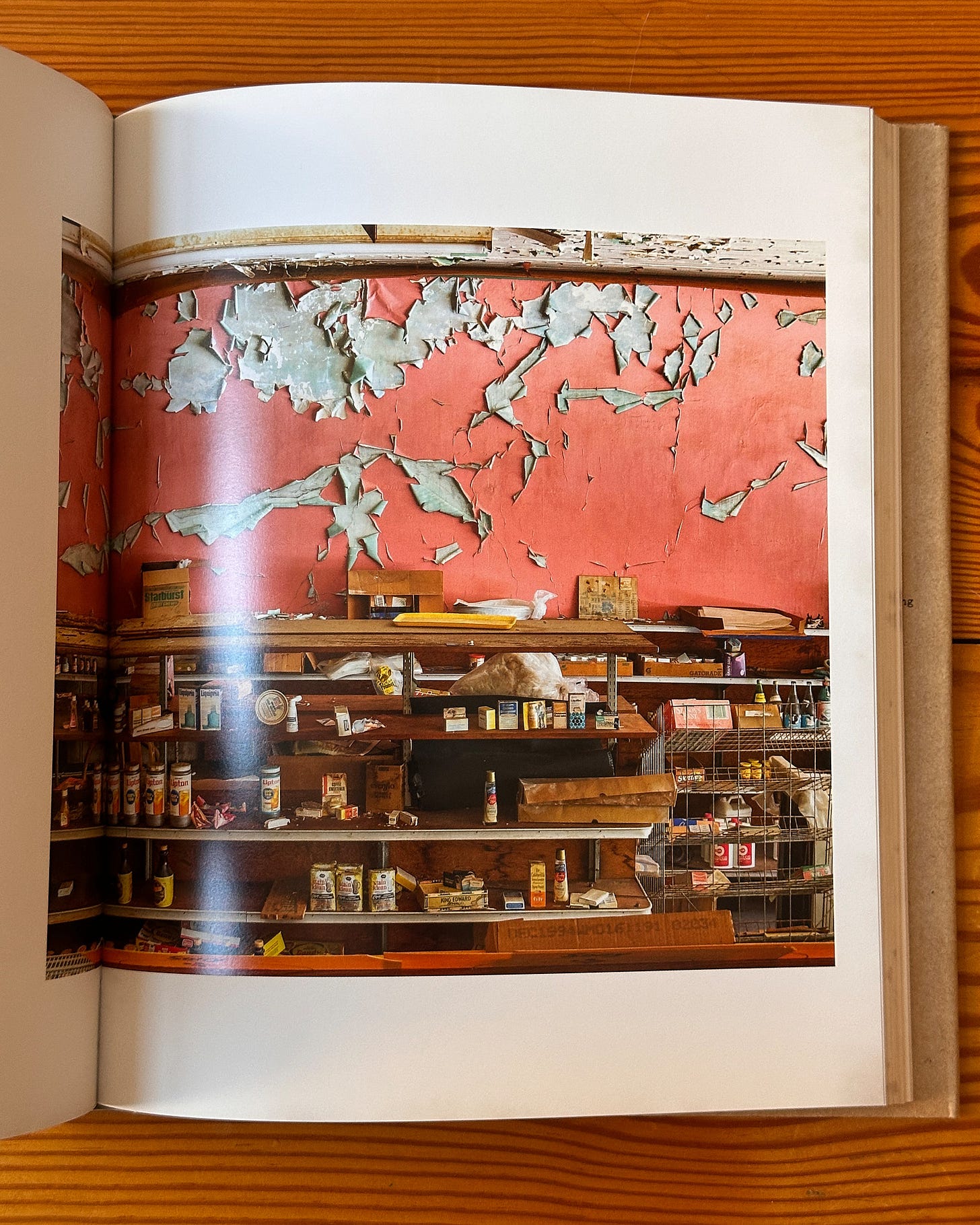Welcome to Studio Notes. This informal newsletter explores cultural references, collates research, and pulls together everything on my desk at the moment—all in relation to how we tell stories, create spaces, and design products at Yun Hai. This is the very first letter.
It’s written for paid subscribers of Yun Hai Taiwan Stories, an otherwise free newsletter about Taiwanese food and culture by Lisa Cheng Smith 鄭衍莉, founder of Yun Hai. If you aren’t yet a subscriber, sign up here.
Gong Co. is a new book by photographer Christian Patterson that documents, interprets, and, to some extent, recreates the decay of a Chinese-American owned family grocery store in the Mississippi Delta over the period of twenty years. There’s a long history of Chinese-American groceries there—it’s beyond the scope of this newsletter, but I recommend this mini-doc for an introduction: The Untold Story of America’s Southern Chinese. As an owner of an Asian American grocery store, I was immediately sucked into the book.
The description of the book recalls a prediction from Andy Warhol:
When Patterson first encountered the store in 2003, it was still open for business but seemingly stuck in time, its shelves scattered with long-expired products. It was like an unintentional time capsule, and an uncanny fulfillment of Andy Warhol’s prophecy that “Someday, all department stores will become museums, and all museums will become department stores.”
This spoke to me. There’s a cynicism to the prediction, but even so, I’ve always thought of Yun Hai as an exhibition in addition to a store. There are many artifacts for display only: a first edition copy of Fu Pei Mei’s Chinese Cooking Vol. 1; a stuffed A-Bian doll (see: Kawaii in Taiwan Politics); miniatures acquired from various vending machines across Taiwan memorializing everyday objects; an old, hand-carved mold for Taiwanese rice cakes, now a dying craft; and more. It’s a commercial project that pursues preservation through a collection of objects and experiences.

Though Gong Co. focuses on the Chinese-American diaspora in Mississippi, the documentation of the store and its elements reminds me that Yun Hai is also a recreation: an homage to the Taiwanese gamadiam 柑仔店, a dying breed of general stores that used to be the beating heart of residential communities in pre-modern Taiwan. The same materials are strewn about—old newspapers, wrapping paper, aging surfaces, cardboard, old products—woven into a texture of commerce, lived experience, and memory.
The artist talks about his book as a memento mori (a reminder that death is the other side of life), but ours is a project of birth and renewal. Yun Hai is trying to bring the gamadiam to life in New York City, at least in the sense of cultural consciousness.
With this in mind, I referenced Interieurs, Notes and Figures, a book published on the occasion of the Belgian Pavilion in the 14th Venice Architecture Biennale. It’s a catalog of lived-in spaces, with notes from the study of those images, documenting how residents have used architectural features as a scaffold for their daily life and decoration. It’s a search for everyday wisdom in spaces in their mid-life. Photographs that look like nothing much reveal remarkable insights when examined closely.
Over the last few months, I’ve been thinking about what to do next in the store. What cultural signifiers are missing? In what direction should the presentation and product mix be developed? How can the concept of gamadiam combine with notions of small Taiwanese agriculture in the largest American city? Should we serve tea eggs?
I’m heading to Taiwan in the next few weeks, and in preparation for a new round of place-based research on gamadiam, I’m going through reference images I’ve taken in the past, inspired by my recent reading. Today I’m sharing my notes; maybe you’ll see some of this in practice at the shop in the coming months.
Gamadiam Design Notes
Gamadiam aren’t known for their design finesse—they can be dark, stuffy, narrow, with limited circulation. But, they are a diagram of community needs, store operations, and lived improvisation. As a student of everything quotidian, I love them and their human touch. May the wisdom of the gamadiam be useful to you, too.






